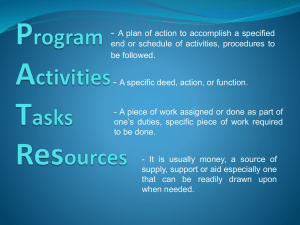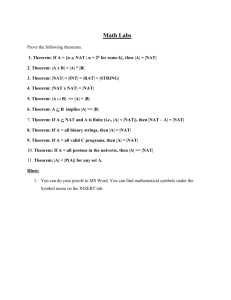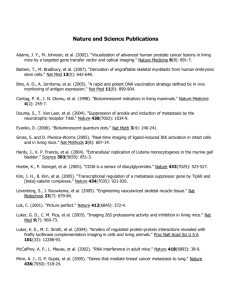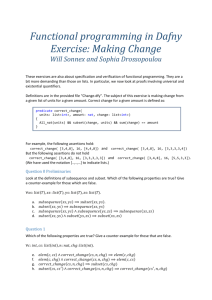function f(n: nat): nat
advertisement
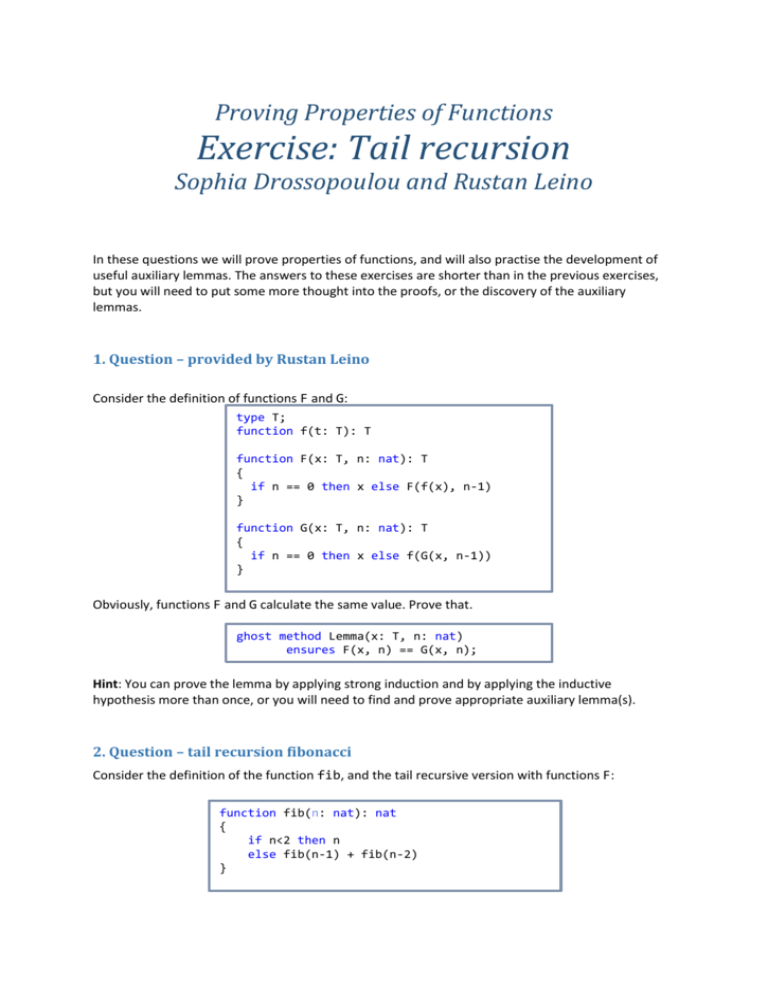
Proving Properties of Functions
Exercise: Tail recursion
Sophia Drossopoulou and Rustan Leino
In these questions we will prove properties of functions, and will also practise the development of
useful auxiliary lemmas. The answers to these exercises are shorter than in the previous exercises,
but you will need to put some more thought into the proofs, or the discovery of the auxiliary
lemmas.
1. Question – provided by Rustan Leino
Consider the definition of functions F and G:
type T;
function f(t: T): T
function F(x: T, n: nat): T
{
if n == 0 then x else F(f(x), n-1)
}
function G(x: T, n: nat): T
{
if n == 0 then x else f(G(x, n-1))
}
Obviously, functions F and
G calculate F(x,
the samen)
value.
that.n);
ensures
==Prove
G(x,
ghost method Lemma(x: T, n: nat)
ensures F(x, n) == G(x, n);
Hint: You can prove the lemma by applying strong induction and by applying the inductive
hypothesis more than once, or you will need to find and prove appropriate auxiliary lemma(s).
2. Question – tail recursion fibonacci
Consider the definition of the function fib, and the tail recursive version with functions F:
function fib(n: nat): nat
{
if n<2 then n
else fib(n-1) + fib(n-2)
}
And now, consider the tail recursive version with functions F:
function F(n:nat, k:nat, m1:nat, m2:nat) :nat
requires n>=k;
decreases n-k;
{
if n==k then m1
else F(n, k+1, m1+m2, m1)
}
Obviously, function F was developed to calculate fib.. Prove that.
function G(n: nat): nat
{
if n<2 then n
else F(n,2,1,0)
}
ghost method Lemma(n:nat)
ensures fib(n) == G(n);
3. Question – more on tail recursion
Consider the definition of the function f::
function f(n: nat): nat
{
if n==0 then 9
else if n==1 then 7
else if n==2 then 5
else f(n-1) + f(n-3)
}
and its tail-recursive versionG
function G(n:nat, k:nat, m1:nat, m2:nat, m3 :nat) :nat
{
if n==0 then 9
else if n==1 then 7
else if n==2 then 5
else F(n,2,5,7,9)
}
Obviously, function F was develo0ped to calculate f.. Prove that.
Sample answers in Repeat_n_times.dfy, TailRecursionFib.dfy, and TailRecursion.dfy
